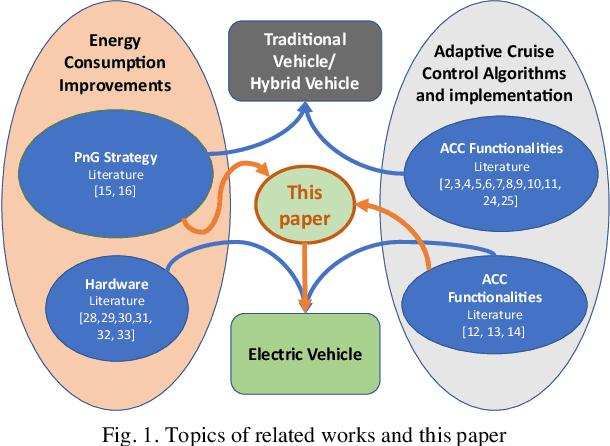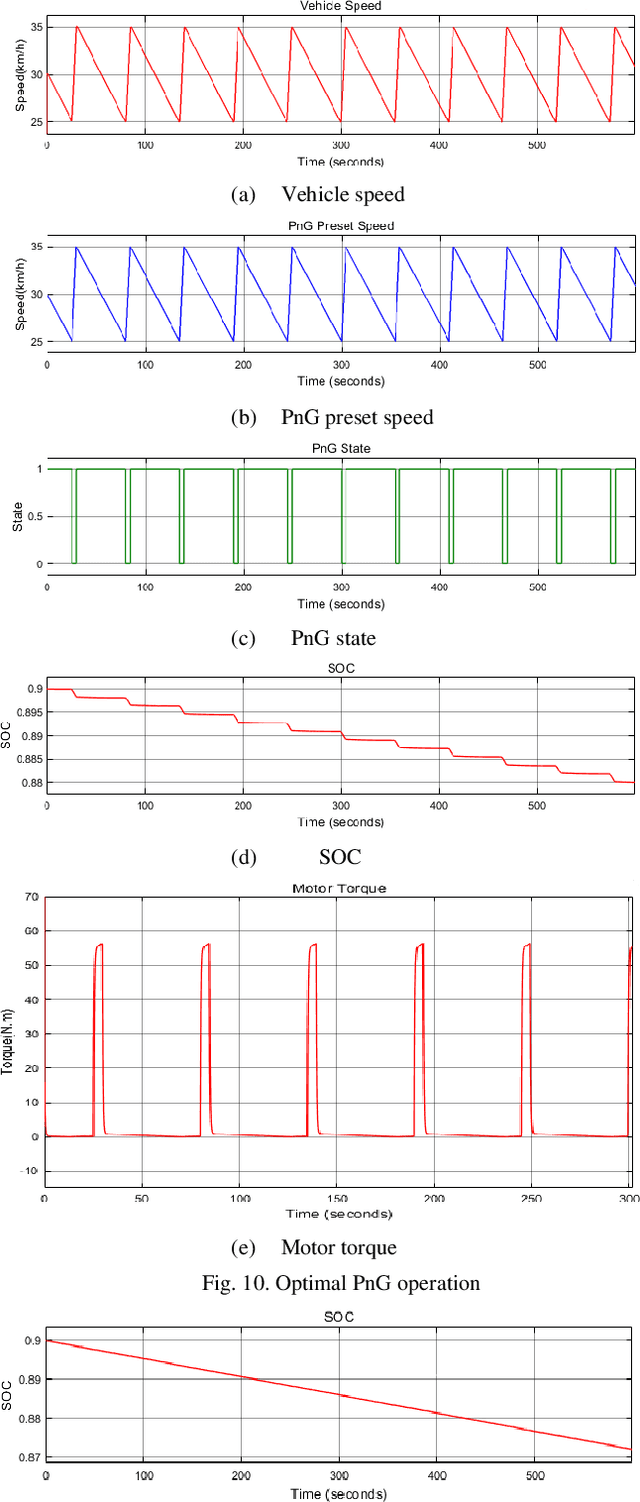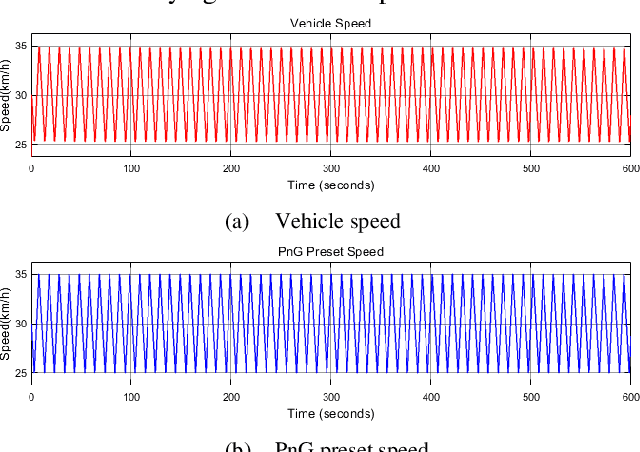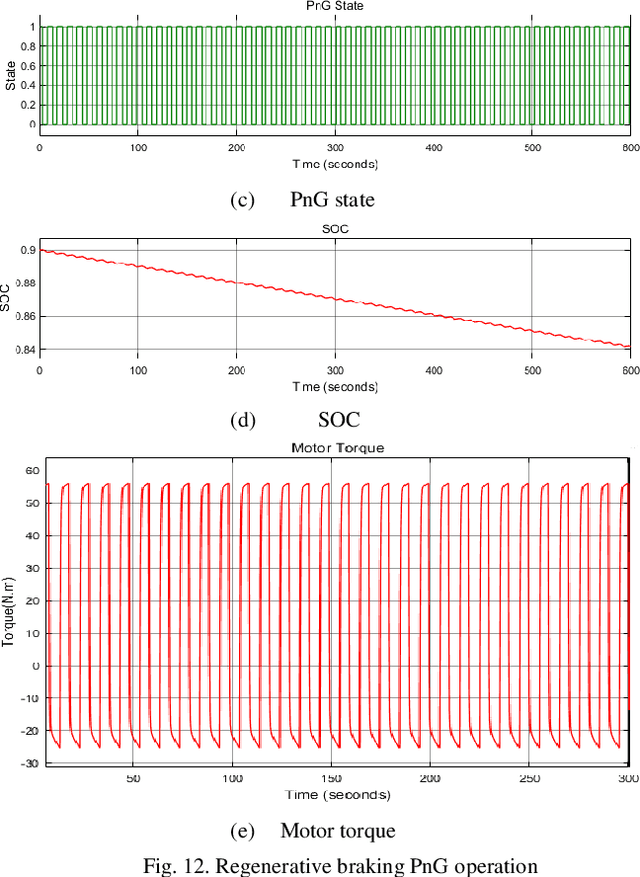A Pulse-and-Glide-driven Adaptive Cruise Control System for Electric Vehicle
Paper and Code
May 18, 2022



As the adaptive cruise control system (ACCS) on vehicles is well-developed today, vehicle manufacturers have increasingly employed this technology in new-generation intelligent vehicles. Pulse-and-glide (PnG) strategy is an efficacious driving strategy to diminish fuel consumption in traditional oil-fueled vehicles. However, current studies rarely focus on the verification of the energy-saving effect of PnG on an electric vehicle (EV) and embedding PnG in ACCS. This paper proposes a pulse-and-glide-driven adaptive cruise control system (PGACCS) model which leverages PnG strategy as a parallel function with cruise control (CC) and verifies that PnG is an efficacious energy-saving strategy on EV by optimizing the energy cost of the PnG operation using Intelligent Genetic Algorithm and Particle Swarm Optimization (IGPSO). This paper builds up a simulation model of an EV with regenerative braking and ACCS based on which the performance of PGACCS and regenerative braking is evaluated; the PnG energy performance is optimized and the effect of regenerative braking on PnG energy performance is evaluated. As a result of PnG optimization, the PnG operation in the PGACCS could cut down 28.3% energy cost of the EV compared to the CC operation in the traditional ACCS which verifies that PnG is an effective energy-saving strategy for EV and PGACCS is a promising option for EV.
 Add to Chrome
Add to Chrome Add to Firefox
Add to Firefox Add to Edge
Add to Edge